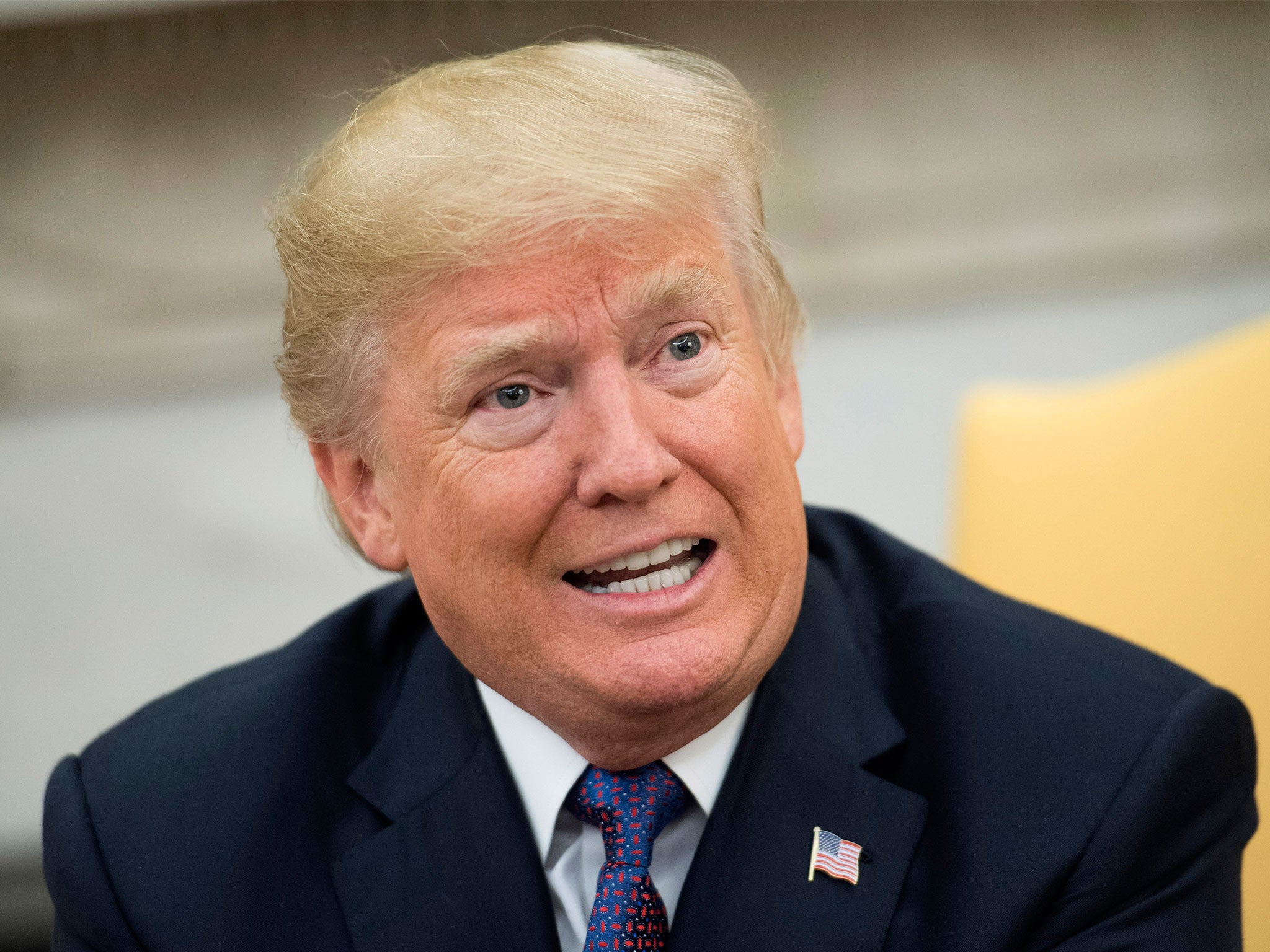Trump to raise human rights with Philippines president Rodrigo Duterte who is accused of human rights abuses
Human rights groups have accused President Duterte of sparking abuses with his signature policy of a war on drugs - something Mr Duterte and police deny

Your support helps us to tell the story
From reproductive rights to climate change to Big Tech, The Independent is on the ground when the story is developing. Whether it's investigating the financials of Elon Musk's pro-Trump PAC or producing our latest documentary, 'The A Word', which shines a light on the American women fighting for reproductive rights, we know how important it is to parse out the facts from the messaging.
At such a critical moment in US history, we need reporters on the ground. Your donation allows us to keep sending journalists to speak to both sides of the story.
The Independent is trusted by Americans across the entire political spectrum. And unlike many other quality news outlets, we choose not to lock Americans out of our reporting and analysis with paywalls. We believe quality journalism should be available to everyone, paid for by those who can afford it.
Your support makes all the difference.Donald Trump plans on meeting with Philippine President Rodrigo Duterte during his upcoming trip to Asia, and the two will reportedly discuss human rights when they do.
Mr Trump has faced criticism previously for his approach to dealing with Mr Duterte, who has been accused of overseeing human rights abuses for his handling of his country’s war on drugs. The two leaders have not met in person yet, but spoke on the phone in May, when they had a “friendly discussion” that included an invitation for Mr Duterte to visit the White House.
The trip marks the first time that Mr Trump will visit the region in his official capacity, and comes as the President has overseen increasingly contentious relations with North Korea over its nuclear weapons programme.
“The President’s travel will underscore his commitment to long-standing United States alliances and partnerships, and reaffirm United States leadership in promoting a free and open Indo-Pacific region,” White House press secretary Sarah Huckabee Sanders said in a statement.
The Philippine president has authorised a bloody war on drugs in his country since becoming president, leading human rights organizations to sound alarm bells. Police have said that 3,900 people have been killed since the operation started, saying that they were armed suspects resisting arrest. Human rights groups claim that the number is far higher, with 7,000 people having been killed since Mr Duterte came to power in 2016.
That war on drugs, which Mr Duterte says is conducted in a lawful manner, has been pillorised by rights groups. Human Rights Watch found that the war mostly targeted impoverished urban slums, and has described state-sanctioned “death squads” that gun down individuals in those communities.
The organisation - and a number of others - has accused police in the country of conducting extrajudicial executions. The Philippine National Police have denied this, saying there have been no extrajudicial killings under the Duterte administration and Mr Duterte himself has blamed the killings on "vigilantes".
Earlier this month, Mr Duterte ordered police to withdraw from the anti-narcotics campaign and leave all operations to the Philippine Drug Enforcement Agency (PDEA) following scrutiny of police conduct. He has previously said that the anti-drugs operation would not be cowed by allegations of abuses.
Last week, Mr Duterte threatened to shoot criminals himself as he suggested he may bring the police back into the fight against the drug trade. He said: “Those who rape children, who rape women... if you don't want the police, I am here now.
“I will shoot them. That's true! If nobody would dare it, I will pull the trigger.”
Referring to the police, he added: “Let us see, six months from now. If things get worse again, I will say... 'Go back to this job. You solve this problem of ours.'”
Mr Duterte has also ordered police to kill his eldest son if drug trafficking allegations against him are proven true. Paolo Duterte told a Senate inquiry last month he had no links to a seized shipment of $125 million worth of narcotics from China, dismissing as "baseless" the allegations of his involvement in the drugs trade.
Talking about the allegations, Mr Duterte said: “I said before my order was: ’If I have children who are into drugs, kill them so people will not have anything to say’,
“So I told Pulong [his son’s nickname]: ’My order is to kill you if you are caught, and I will protect the police who kill you, if it is true’”.
During Mr Trump’s visit to Asia, he is scheduled to attend the Association of Southeast Asian Nations conference, which Mr Duterte is hosting in Manila. Mr Trump is also scheduled to visit China, Japan, South Korea, and Vietnam during his trip in November.
The President will visit with American service members in Japan during his trip there, as well as Japanese service members and families of individuals who have been abducted by North Korea.
In South Korea, Mr Trump reportedly plans on addressing the National Assembly, and meet with President Moon Jae-in.
In Beijing, Mr Trump will engage in “bilateral, commercial, and cultural events, including meetings with President Xi Jinping,” according to the White House.
Join our commenting forum
Join thought-provoking conversations, follow other Independent readers and see their replies
Comments